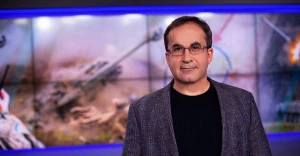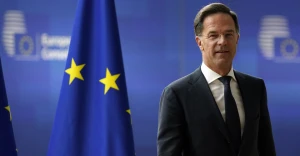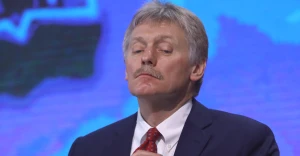
EU supports Zelenskyy’s call for U.S. peacekeepers, seeks to persuade Trump — media
European officials are calling on the new administration of U.S. President Donald Trump to commit to security guarantees for Ukraine
Bloomberg, citing its sources, reported the information.
EU partners agree with Ukrainian President Volodymyr Zelenskyy that the U.S. will need to send troops for future peacekeeping forces in Ukraine.
They believe the U.S. may support this idea, despite Trump's initial reluctance. However, they emphasized that it is still too early to discuss the specifics of what the future peacekeeping forces will look like.
European leaders are intensifying efforts to influence the new U.S. administration as Donald Trump prepares for potential negotiations with Kremlin leader Vladimir Putin. Despite the White House's firm rhetoric on increasing economic pressure on Moscow if it refuses to halt hostilities, the Kremlin has yet to show willingness for significant concessions.
According to Bloomberg, citing a senior European official, if European countries have to send troops independently, it could undermine trust in NATO and signal a weakening of transatlantic partnership.
At the same time, according to the outlet, Trump may reconsider his skeptical stance on supporting Ukraine. According to a Western diplomat, his team has acknowledged the need to provide Kyiv with certain security guarantees but requires Europe to take on a larger share of responsibility for any potential peace agreement.
According to the diplomat, the U.S. expects European partners to provide the majority of the military contingent, as Trump considers the war in Ukraine to be primarily a European issue.
Additionally, sources within the U.S. president's circle claim that the Trump administration does not plan to be directly involved in Ukraine's reconstruction. According to them, this role should be taken on by the private sector, although a final decision has not yet been made.
Meanwhile, Ukrainian President Volodymyr Zelenskyy is seeking Trump’s support as part of diplomatic efforts to end the war, which has now been ongoing for four years. In an interview with Bloomberg, he emphasized that effective peacekeeping efforts must include the involvement of U.S. military forces, as European support alone will not be sufficient to deter Putin.
Issue of trust
Ukraine’s European allies cautiously view U.S. President Donald Trump’s policies, hoping he won’t pressure Kyiv into premature peace talks with Russia. This week, Trump threatened Moscow with new financial sanctions if Vladimir Putin doesn’t cease hostilities soon.
Trump’s Special Representative Keith Kellogg is expected to visit Kyiv in the coming weeks. He has emphasized that he wants to find a solution within the first 100 days of the new administration. The news comes after Trump backed away from his campaign pledge to mediate a settlement within 24 hours.
However, given the unpredictability of Trump's decisions, many questions remain open. This is causing concern among European allies about the level of future U.S. military commitment to support security guarantees to Ukraine — or even whether there will be any such commitment at all.
Some European leaders, including French President Emmanuel Macron, are considering deploying European troops to Ukraine after a ceasefire is reached. European nations are also consulting to prepare specific proposals for Washington, according to a source familiar with the matter.
However, a senior French official noted skepticism in Europe about the level of U.S. involvement. Allies understand they will need to rely on their own resources, as Washington’s role is expected to be limited and unlikely to include deploying military personnel on the ground.
This adds challenges to ensuring long-term peace.
“To avoid a resumption of the war, you need strong enough guarantees. NATO membership is a yardstick for what an effective guarantee would look like,” said Patrick Turner, a senior NATO official in Ukraine.
- Former deputy assistant Secretary of State for Europe and Eurasia Matthew Bryza explained that each NATO country can send its peacekeeping troops to Ukraine without the Alliance's approval.
- News













































